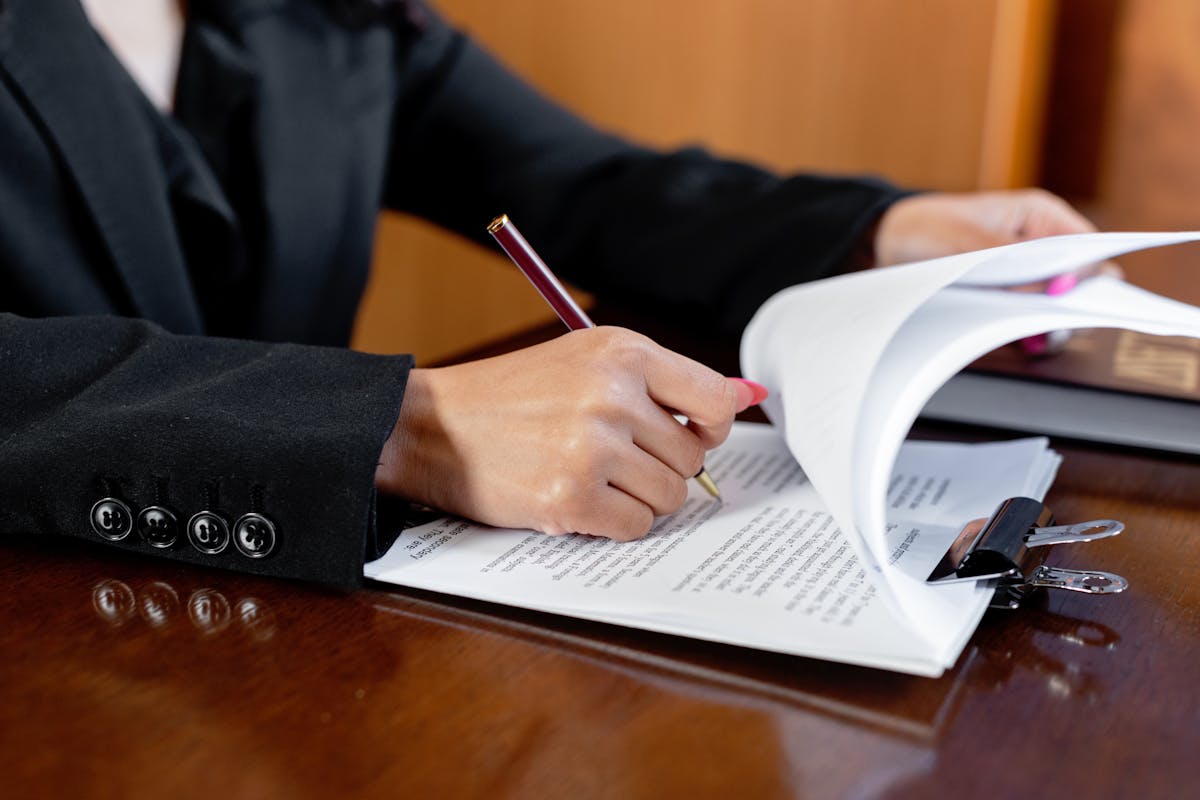Steering through the aftermath of an accident injury can be a intimidating task, filled with uncertainties and potential pitfalls. What immediate steps should you take? What are the key aspects to document? And how can you guarantee you’re adequately compensated for your injuries? This discussion aims to provide insights into these questions, offering a structured approach to managing the post-accident process effectively. Your participation could greatly influence your understanding and preparedness for such unforeseen events.
Assessing Immediate Injuries
While it might be tempting to dismiss your pain as minor in the immediate aftermath of an accident, it is important to accurately assess your injuries. Initial symptoms may seem inconsequential, but they can signify more severe issues that may worsen if not properly addressed.
The initial symptoms of injuries may vary but often include pain, discomfort, dizziness, or visible signs such as bruising, bleeding, and swelling. It’s important not to downplay or ignore these symptoms, as they provide significant clues about the potential damage your body may have sustained. Also, some injuries, like internal bleeding or concussions, may not manifest obvious symptoms immediately but could have serious, even life-threatening consequences.
Injury assessment should not be a matter of personal judgement alone. A professional medical evaluation is necessary to diagnose and treat any injuries accurately. Injuries may not always be visible, and professional health care providers have the knowledge and tools to detect these.
Contacting Emergency Services
In the wake of an accident, promptly contacting emergency services is a vital step. This action is not simply a procedure within the accident protocols, but a lifesaving measure that can drastically alter the outcome of the incident. A swift emergency response is dependent on this essential action, and therefore, it must be prioritized.
Understand that the role of emergency services is not limited to medical assistance. They also provide immediate safety measures, to prevent any further harm. This might include managing traffic, extinguishing fires, or containing hazardous materials. Their expertise and equipment are specifically designed to handle such scenarios.
When contacting emergency services, provide clear, concise information about the accident. This includes the location, the number of people involved, and a brief description of injuries and damages. This enables the dispatcher to send adequate resources to handle the situation.
Documenting the Accident Scene
After the dust has settled and emergency services have been alerted, it becomes vital to meticulously document the accident scene. This can seem overwhelming amidst the chaos and confusion, but having detailed records can be invaluable for future legal or insurance purposes. The first step is to gather witness statements. Bystanders often have a unique perspective of the event that can provide critical insights. Approach them calmly, ask for their account, and make sure to record their contact details for any necessary follow-ups.
Equally important is capturing photographic evidence. Use your smartphone to take clear, thorough photos of the scene, including vehicles, road conditions, signage, and injuries sustained. Photographs can vividly illustrate the extent of the damage and serve as irrefutable evidence in your favor.
Reporting to Your Insurance
Having properly documented the accident scene, it is of utmost importance to promptly report the incident to your insurance company. This vital step initiates your claim, enabling the insurer to start their evaluation process. Accurate documentation of the incident, your injuries, and any property damage will be instrumental in ensuring a smooth process and fair compensation.
Contacting Your Insurer
Your insurance provider’s role in the aftermath of an accident injury is vital. Prompt and clear insurer communication can greatly impact the resolution of your claims. It’s essential to understand that the sooner you inform your insurer about the incident, the better prepared they will be to guide you through the claim process.
Understanding your policy coverage is equally important. Your policy document outlines the scope of your coverage, including stipulations and exclusions. It’s fundamental that you arm yourself with this knowledge before reaching out to your insurer. This way, you can anticipate potential challenges, negotiate better, and make informed decisions.
When contacting your insurer, keep communication channels open and maintain a cooperative attitude. Remember, your insurer is there to help you navigate this challenging time. However, it’s vital to be proactive in ensuring your interests are protected. If there are any doubts or ambiguities regarding your policy, seek clarification immediately.
In the event of an accident injury, your insurer is a key ally. By understanding your policy coverage and maintaining open, honest, and timely communication, you can facilitate a smooth and fair resolution.
Documenting Insurance Claims
Steering the process of documenting insurance claims is an integral part of the post-accident procedure. Getting this right can greatly influence the outcome of your claim process, as it directly impacts the settlement you receive from your insurance policy.
To begin with, make sure you thoroughly understand the coverage provided by your insurance policy, including what is and isn’t covered. This knowledge will guide you in compiling the necessary documents to substantiate your claim and in identifying possible areas of contention.
Next, document every aspect of the accident scene and your injuries. This includes photographs, video footage, witness statements, and medical reports. These pieces of evidence are vital in establishing the authenticity of your claim and the extent of your injuries.
It’s also essential to keep a detailed record of all medical treatments, expenses, lost wages, and other accident-related costs. This will help justify the claim amount you are seeking.
Lastly, maintain open and regular communication with your insurance provider throughout the claim process. Make sure you understand what is required of you at each stage and adhere to all deadlines. Remember, prompt and accurate documentation can be the key to a successful claim.

Seeking Medical Attention
Immediately after an accident, it’s vital to prioritize your health and wellbeing by seeking medical attention, regardless of the perceived severity of your injuries. Not all injuries are immediately apparent, and some can become more serious if left untreated.
It’s important to understand that your body may be in shock after an accident, masking the true extent of your injuries. For this reason, always accept medical help at the scene, even if you initially feel fine. Additionally, follow-up with your own health care provider after the incident.
Your doctor will conduct a thorough examination to detect any underlying injuries, providing an essential foundation for your recovery process. They will guide you through suitable pain management strategies, mitigating discomfort and allowing you to regain control over your life.
In addition to immediate care, your healthcare provider can outline rehabilitation options tailored to your individual needs. This could include physical therapy or occupational therapy, which are vital in restoring functionality and improving quality of life post-accident.
Tracking Treatment and Expenses
After receiving the necessary medical attention, it’s equally essential to meticulously track your treatment progress and associated expenses. This is where a treatment timeline and expense tracking become vital. These tools allow you to document each step of your medical journey, providing a thorough view of your health status, the treatments you’ve received, and the costs they’ve incurred.
Maintaining a detailed treatment timeline is instrumental in understanding your overall health trajectory. It should chronicle every medical procedure, medication prescribed, therapy session, and any changes in your health condition. This thorough record not only helps you manage your recovery effectively but also substantiates your claims in case of legal proceedings.
Expense tracking, on the other hand, involves keeping a precise record of all medical costs. These may include hospital bills, prescription drugs, physiotherapy sessions, and even travel costs to medical appointments. This painstaking task can be overwhelming, but it’s a vital step in ensuring you receive fair compensation.
Consulting With an Injury Lawyer
While meticulously tracking treatment and expenses forms a key part of your post-accident journey, another significant step is to seek legal advice. Consulting with an injury lawyer can provide you with the necessary legal representation to navigate the intricate domain of injury compensation.
An injury lawyer specializes in personal injury law and can guide you through the complex legal procedures. They can help you understand your rights, assess the validity of your claim, and estimate the compensation you may be entitled to.
Consider these vital reasons for consulting an injury lawyer:
- Expertise: They possess extensive knowledge about personal injury law and can help you navigate the complexities of your case.
- Negotiation Skill: Lawyers are experienced negotiators who can deal with insurance companies to guarantee you receive fair compensation.
- Objective perspective: A lawyer can provide a clear, objective viewpoint on your situation, which can be valuable during this stressful time.
Filing an Accident Injury Claim
Steering through the process of filing an accident injury claim can be intimidating, particularly when still recovering from the trauma of the incident itself. However, understanding the claim process can make this challenging task more manageable and increase the likelihood of a successful outcome.
The first step is to gather all evidence related to the accident. This includes medical records, police reports, witness testimonies, and any photographs or video footage from the scene. These documents will play a vital role in substantiating your claim.
Legal considerations are also paramount in an accident injury claim. Consultation with a skilled attorney is advisable as they can guide you through complex legal procedures, advise on the potential value of your claim, and represent your interests against insurance companies or in court.
An essential aspect of the claim process is communication with the insurance company. It’s important to file the claim promptly and provide all necessary information. However, remember that insurance companies are businesses aiming to minimize payouts. Therefore, never accept the first offer without first discussing it with your attorney.
Frequently Asked Questions
What if I Cant Return to Work After My Accident Injury?
If you’re unable to return to work post-accident, consider seeking disability benefits. Discuss possible workplace accommodations with your employer. Consult a legal professional for guidance to guarantee the protection of your rights and interests.
How Should I Handle Communication With the Other Party Involved?
It’s essential to approach communication cautiously. Primarily, refrain from accepting blame as it may impact liability determination. Keep discussions factual and consider engaging a legal representative for insurance negotiations to protect your interests.
What Can I Expect From the Rehabilitation Process Post-Accident?
The rehabilitation process post-accident typically involves a tailored plan including physical therapy and medication. The timeline varies based on injury severity, but commitment to therapy options can greatly accelerate recovery and restore functionality.
How Can I Manage Stress or Trauma After an Accident?
Managing stress or trauma post-accident can be achieved through mindfulness techniques, such as deep breathing and meditation. Joining support groups also provides emotional healing, as it fosters a sense of community and understanding among individuals with similar experiences.
What Kind of Compensation Can I Expect From a Personal Injury Claim?
Compensation from a personal injury claim varies, typically covering medical expenses and lost wages. The amount depends on injury severity, economic losses, and the impact on quality of life. Consult with a legal professional for specifics.

